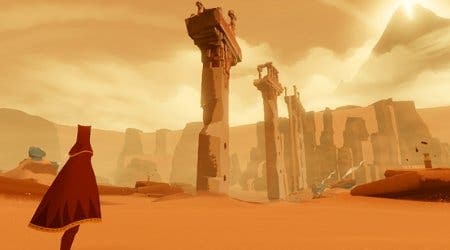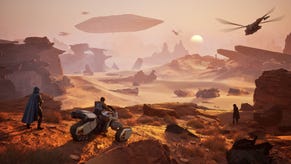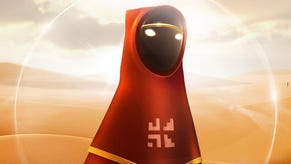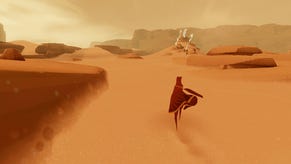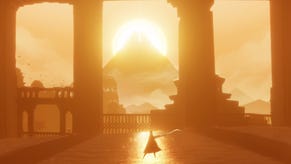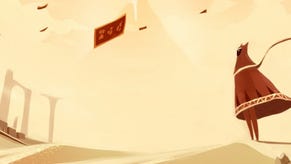Journey developer on games as art debate
"All games are art," says Robin Hunicke.
UK arts guru Ekow Eshun believes most video games can't currently be considered art - but one developer disagrees.
That developer is Robin Hunicke, producer of Thatgamecompany's upcoming PlayStation Network game Journey, who told Eurogamer at the GameCity6 festival in Nottingham that games have been art from day one.
Eshun, who was formerly director of the Institute of Contemporary Arts, said on BBC Radio 4's Today programme this week: "I'd suggest that the things we really consider art are the things that allow us to ask profound questions about who we are, how we live and the state of the world around us. I think most games don't get to that place, and it's important to set that bar quite high."
Discussing the games as art debate, Hunicke said personal experience is what's most important - and if games move players in any way, then they can be considered art.
"For me games are art because they create feelings inside as me, just the same way music does, or when I go to see the Arnolfini Wedding portrait in the National Gallery. Not everybody loves to look at Jan van Eyck, or Flemish Masters painting, but I'm really into it. To me that's compelling art. I'm a huge fan of opera. It's not for everybody, but I love it. Games are for me as well. I put them in the same category as those things because of my personal experience."
Indeed, according to Hunicke, even the process of making games, and the mechanics behind them, are art, because they communicate something to the player.
"All games are art. All games require art. All games have people creating visual medium. The gameplay mechanics, the rules themselves are actually an art. There are so many kinds of art in a game that that seems just like a given.
"But the experience of playing a game, the experience of communicating with the system and through that system with designers and artists and musicians, programmers, that feeling is communicating something. There's a communication happening between the team and the players, and that communication is what defines art for me."
US film critic Roger Ebert famously ignited passions back in 2010 with his assertion that video games were not and never could be labelled as art.
A number of video game developers have been vocal in their insistence that video games are art, including Mass Effect maker BioWare and Uncharted creator Naughty Dog.
"Art is what separates people from animals," Hunicke said. "Communicating through an artefact you made. Making something and giving it a shape. A Starbucks cup doesn't need to be the shape of a Starbucks cup. A bottle of water doesn't need to be the shape of a bottle of water. Somebody designed these things. In a way they communicate a certain thing. The iPhone communicates something. This pen. My notebook. Your phone. It all ends up having this quality of communication.
"To me the really intimate feelings you can get from playing a game are the thing that make it art. It turns it from just being design into something that's about a message. When that happens it's beautiful."
Even the act of playing a video game can be art, Hunicke argued.
"Haven't you seen the videos of Evo tournament, when you feel that swelling of your throat? You could watch a football game and have the same feeling. You can have this feeling of humanity in a way, and people have said that. When he plays it's like art, it's like a performance. It's no different than a musician, watching this tennis player in their art, in their craft.
"We use that word to mean a variety of things, but effectively what it means is you're moved by it. You find it inspiring and it transforms you and changes the way you think about things. There's no reason a game can't do that."
